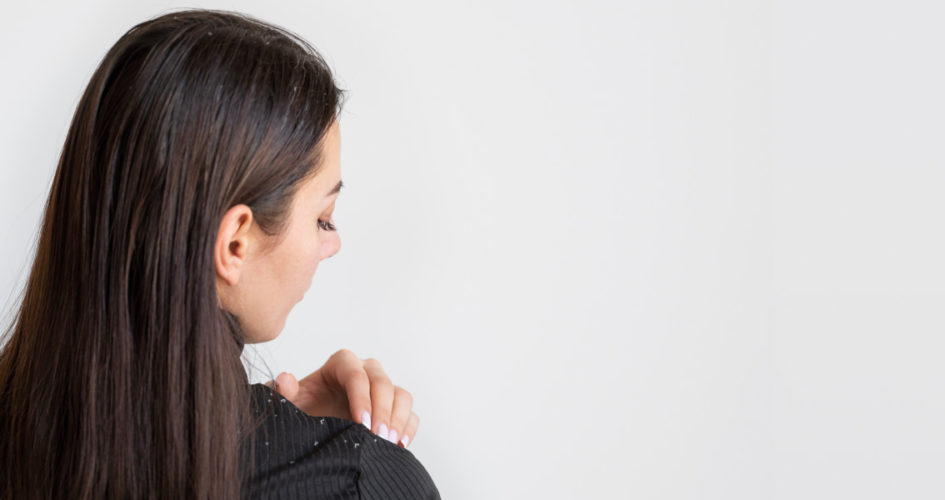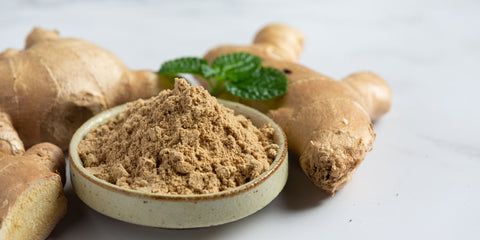
Dandruff In Winter: 11 Home Remedies That Really Help
Have you noticed the occurrence of dandruff in winter? Unfortunately, it is one of the most common problems in winter. So you have to know how to treat dandruff in winter! Dandruff is small flakes of keratinized skin cells that form at the roots of the hair. It is a condition of the scalp that occurs when it dries up or has too many microorganisms. It is a prevalent condition, affecting more than half of all adults worldwide. Although it can be a natural symptom of a dry and flaky scalp, dandruff can also cause serious discomfort. As it worsens during the colder months. We have prepared 11 simple but very effective dandruff remedies you can use at home in winter. Read this article to learn all about getting rid of dandruff in winter.
What Are The Home Remedies To Get Rid Of Dandruff In Winter?
Of course, there are many ways to get rid of dandruff that you can find on the Internet. We’ve researched them and created the easiest, fastest, most effective step-by-step guide. If it doesn’t go away long enough, you should see a dermatologist or trichologist. At the same time, you can use all the homemade recipes. With this, you can eliminate dandruff and reduce its number.
1. Look For The Right Ingredient In Shampoos

Winter is an excellent time to start paying closer attention to the ingredients in any cosmetic. And you need to use the same applies to hair care products. Zinc pyrithione is a strong ingredient in products for dandruff treatment at home in winter.
It helps the dry, flaky scalp regain its balance. Look for formulas that include vitamins and soothing ingredients. You can search for cucumber, aloe, and peppermint extracts to help soothe an inflamed scalp.
2. Exfoliate Your Scalp

You remove dead skin cells from your face and body with peels and scrubs. So why not use exfoliants on your scalp as well? It has a stratum corneum of dead cells that keeps nutrients.
Once a week, use an exfoliating scrub or scalp mask and then wash your hair with shampoo as usual. It is better to use scrubs containing salt or sugar that act as abrasive particles.
They dissolve with water and are very easy to rinse out. That’s why scrubs are one of the best home remedies for dandruff in winter. Besides, they both exfoliate and soothe the scalp.
3. Change Your Hair Care Routine

Don’t expect things to change after the first wash with dandruff shampoo. It doesn’t work that way. You can apply these shampoos at least twice a week. When you use shampoo, whip it into an excellent foam to wash all the flakes.
Leave the therapeutic shampoos for at least 1 minute before rinsing them out of your hair. Consistency and patience are essential remedies for dandruff in winter.
4. Use Fair For Life Certified Organic Dyes

Pay attention to the hair dye. It can also become a home dandruff remedy in winter. If you dye your hair, you need to monitor the dye quality. It is crucial that it does not dry out the scalp but nourishes and moisturizes.
The easiest way to achieve this is to use natural based dyes. Natural ingredients will have a caring effect on your hair and will not damage it. These dyes are made of pure raw powders such as henna, beets, hibiscus, turmeric, aloe vera, chamomile, and other natural ingredients.
5. Keep Good Nutrition

A proper diet is also good for dandruff treatment at home in winter. During the holidays, we all tend to eat more than usual, but it’s worth remembering that excessive food and drinks can cause worsening dandruff. Eating too many calories harms your weight, skin, and hair.
Large amounts of sugar in the diet provoke skin problems, including scalp problems. Spicy foods can also cause dermal issues. It is essential to find a provocative product and give it up.
6. Do Hair Restoration With Henna

Henna strengthens hair, gives it shine, removes dandruff, and reduces hair loss. This hair dye is natural, so it helps preserve the environment. We have to remember about it and care. Henna has no contraindications except for individual intolerance of the substance.
So it is an excellent remedy for dandruff in winter. You can use it during pregnancy and lactation. Also, henna masks are excellent for dealing with dandruff. To do this, use:
- Henna – 100 g;
- Milk – 1 cup;
- Yolk.
Do not mix the mask’s components in a metal bowl to avoid a chemical reaction. Apply it to dry hair and scalp for 15 minutes and wash off with shampoo. The mask should be done once a month; the course is designed for six months.
7. Olive Oil For Dandruff

Olive oil prevents flaking by moisturizing dry areas of the scalp. It works perfectly as a dandruff treatment at home in winter. You need to heat olive oil and rub it into your scalp daily before bed. You can cover your head with a paper bag to ensure oily hair does not stain the bed. Then you need to wash your hair with shampoo the following day.
8. Leaves Of Neem For Dandruff

One more exotic remedy for dandruff in winter is the indian neem. It is a plant that has antifungal, antibacterial, and anti-inflammatory properties. It relieves the skin from itching. Also, it stops the rapid growth of pathogenic bacteria that cause dandruff. You can buy it in specialized stores. You will need to:
- boil the neem leaves for 30 minutes;
- then grind them to the consistency of a paste;
- apply to the skin for 30-60 minutes;
- rinse with water.
9. Watch Your Hydration Levels

In winter, when the harsh winds blow and the heat is on, keeping your skin and hair healthy and hydrated is essential. In winter, your skin can be dehydrated and vulnerable, so it’s time to use more nourishing products and monitor your daily water intake.
10. Get Outdoors More Often

It is one of the most accessible home remedies for dandruff in winter. Winter walks are good exercise and a source of vitamins the body needs during the cold season. A big part of that is hair and scalp health. Make the most of the short daylight hours if the opportunity presents itself. Be sure to walk during your lunch break and spend time outdoors at every chance.
11. Ginger Mask

Ginger activates hair growth and has anti-inflammatory properties. In addition, ginger rhizomes contain essential oils that stimulate blood circulation. So applying it to the scalp improves the nutrition of the hair follicles. To prepare this remedy for dandruff in winter, you need:
- Peel and grate a piece of ginger on a fine grater;
- Then, squeeze out the juice from the resulting mass;
- Add 100 ml of sesame oil (good for moisturizing the scalp and hair) to the juice and mix;
- Then apply the product to the skin for 30 minutes;
- Wash your hair with shampoo.
Final Thoughts
Thus, in winter, the scalp is prone to the appearance of dandruff. So if you have symptoms of dandruff, it is important to start treating the condition in time. Seborrhea does not go away on its own. You have to use good remedies for dandruff in winter.
Also, remember that your dermatologist or trichologist can determine how to treat dandruff in your case. Well, now we are sure that you know how to avoid dandruff in winter.
FAQ
How to avoid dandruff in winter?
You have to eat regularly and properly to maintain the levels of all essential nutrients in the body. Control the use and quality of hair products and drink enough water.
What are the causes of dandruff in winter?
There are several reasons for the appearance of dandruff in winter:
- rapid temperature changes;
- vasoconstriction and decreased blood circulation;
- reduced hydration of the hair and scalp;
- increased multiplication of fungi;
- health problems and susceptibility to disease.
Why does dandruff get worse in winter?
In winter, the scalp dries out more due to central heating and temperature changes, causing dandruff. It clogs the follicles, leading to their inflammation, and then to hair loss.
Does Omega 3 help with dandruff?
Yes, Omega 3 fatty acids also reduce inflammation, irritation and dandruff symptoms. Fatty fish like salmon, trout, and mackerel are great sources of fatty acids. You can also take fish oil capsules or increase your intake of other foods rich in Omega-3, such as flaxseeds, chia seeds and walnuts.
